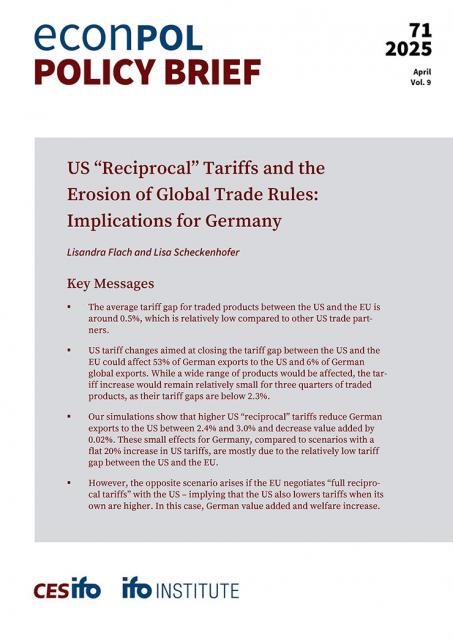News Archive

Incentives for Accelerating the Production of Covid-19 Vaccines
|
Policy Brief
| News
Delays in the availability of vaccines are very costly for society but existing fixed price contracts provide no incentives for producers to speed up delivery: a dose delivered tomorrow receives the same price as a dose delivered in the next quarter. The benefits for early delivery are huge for society, but non-existent for suppliers. A better contract would have the price fully variable over time. In this policy brief, the authors show that it is straightforward to design an optimal contract, which aligns the time paths of the price with that of the social value of a vaccination.

Survey-Based Structural Budget Balances
|
Working Paper
| News
The budget dispute between Italy and the European Commission in 2018 gave new impetus for the debate about the reliability of output gap estimation methods and their use for calculating structural budget balances. In this paper, Marcell Göttert and Timo Wollmershäuser review the main properties of the mainstream approaches. They show that the structural budget balances resulting from the production function approach and the time series approach are imprecise, subject to large revisions and often biased.

Robots at Work? Pitfalls of Industry Level Data
|
Working Paper
| News
An analysis of data from the International Federation of Robotics (IFR), currently the most widely used data on the economic effects of robotization, has found that robotization has significantly lower productivity effects than previously assumed and may cause falling wages.

EEAG Report on the European Economy 2021 - Beyond the Coronavirus Crisis: Investing for a Viable Future
|
EconPol Special Publication
| News
The coronavirus crisis has led to the sharpest economic downturn in modern times and poses unparalleled challenges to policy both on a national and an EU level, as well as globally. The European Union has launched the ground-breaking Next Generation EU (NGEU) program, which involves common burden-sharing and explicitly aims to strengthen social cohesion within the European Union. If it succeeds, it will strengthen both the role of the European Union and cohesion within the European Union.

The Role of Fiscal Policies for External Imbalances: Evidence from the European Union
|
Working Paper
| News
This research from António Afonso and José Carlos Coelho studies the existence of a causal relationship between the general government balance and the current account balance (assessed as a percentage of GDP) for 28 European Union countries, using annual data for 1996 to 2019. They find that an increase in budget deficit of 1 pp of GDP results in a deterioration of the current account deficit of 0.318 pp of GDP, which supports the Twin Deficits Hypothesis.
